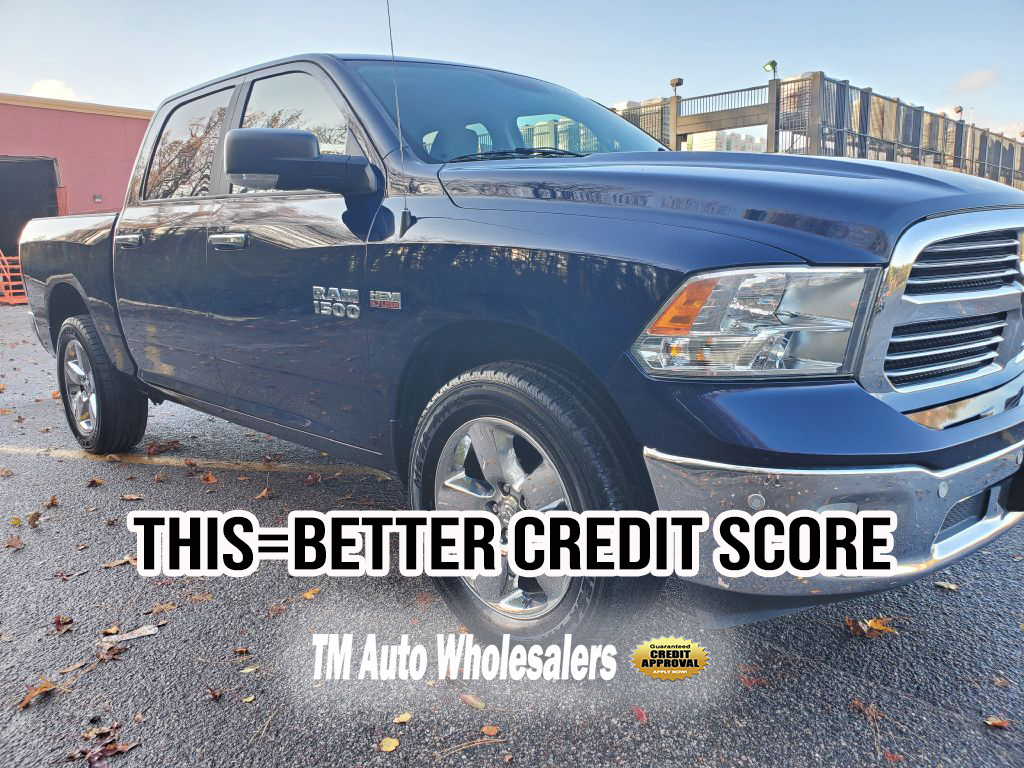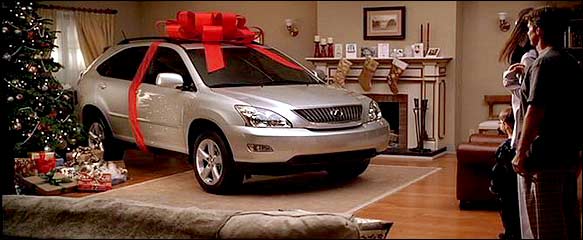 How to Get It
How to Get It
Buying a used car can be daunting. First, you have to find a car that suits all your needs and is safe, and reliable. Now comes the fun part, paying for your new car. If you’re like most people, you’ll be applying for a car loan. When you get a loan, you borrow money from a lender and pay them back over time, with interest. The amount you actually borrow is the loan principal or financed balance, plus interest. The interest rate, presented as an annual rate, is the percentage you pay back in addition to the loan principal.
How do car loans work?
Most people think that when you get a loan to buy a car the finance company lends you the money and the car is yours. In reality, however, the lender actually owns the car, and they’re just letting you drive it while you’re paying off the loan. You don’t get the title to the car until you make your final loan payment. This is why if you don’t make your payments, the lender can repossess the car and if the car is destroyed or stolen during the term of the loan, you’ll still have to pay back the loan. This is also why lenders require you to carry insurance on the car where they’re named as the lien holder. If you fail to provide proof of insurance to the lender, they will purchase insurance on your vehicle to protect their investment. Letting that happen isn’t ideal, however, as the insurance is pricey and only protects the lender, not you.
Different loans have different loan terms, or how long you have to pay the lender back. For example, if you sign up for a five-year term, you’ll pay the money back, and then own the car free and clear, after 60 months. Loans are paid back in monthly installments, and most financial institutions can set up automatic payments to ensure that an installment is not late or forgotten. Lately longer and longer loan terms have been offered to customers; some lenders even offer eight-year car loans. While such long terms can mean lower monthly payments, they can also create situations in which you owe a lot more than the car is worth. The typical auto loan for a used car is much less, than for a new car — an average of $19,329 for used cars and $30,621 for new ones.
How does your credit score affect interest rates?
No loan is the same; some people pay more interest, and some pay less. The interest rate is based on a number of factors, one of which is your credit score. Sometimes called a FICO score, though FICO is only one credit scoring method used by lenders, your credit score can be anywhere from 300 to 850. Credit scores are determined by credit bureaus based on how much debt you have, how many open accounts you have, how much credit you have been offered, whether or not your bills have been paid on time, and the length of time you’ve been using credit.
Your lender will use information from your application and credit report to determine your debt-to-income ratio, and your credit score predicts how able and likely you are to pay back the loan. If you have a lower score, lenders will assume that you’re at high risk for not paying the loan back will charge you a higher interest rate and may only extend a loan offer with a shorter term. A more substantial down payment might also be required from customers with lower scores. It’s important to know your credit score before you apply for a car loan and do your best to make sure it’s as high as it can be.
You’re entitled to free credit reports from the major credit bureaus, but you may have to pay a little extra to get your actual score. There are a few ways to improve your score if it isn’t as high as you’d prefer, like paying off old bills and paying all bills on time for 6-9 months. If you don’t have any credit card debt, closing unused cards can help raise the score. If you do have card balances, closing cards can actually hurt your credit by raising your percentage of credit utilized. You’ll also want to double check your full credit report to ensure its accuracy. For example, say someone stole your identity and opened a credit card in your name. This could affect your ability to get a car loan, or the terms of any loan offered. You need to report the fraudulent activity right away so any errors can be corrected before you apply for auto financing. Dealing with the credit bureaus takes time, so checking your score before applying for a loan is vital.
If you have a high credit score, 760 or above, you’re considered a prime loan applicant. This means you can be approved for interest rates as low as 2 or 3%. Those with lower scores are considered a riskier investment for lenders, meaning higher interest rates. Individuals in this ‘subprime’ category (a score of 580 or below) can end up paying auto loan rates that are 5 or 10 times higher than what prime consumers receive. Most people who get auto loans have a credit score around 706 and should expect to pay rates close to the 4.21% mean.
What other factors affect your loans and interest rates?
Auto loan interest rates also depend on the type of institution lending money, so choosing the right lender means lower rates. Large banks are the leading lenders for auto loans, but credit unions tend to provide customers with the lowest APRs.
The national average for auto loan interest rates in America last year was 4.21% on 60 month loans. For individual consumers, however, rates vary based on credit score, term length of the loan, age of the car being financed, which institution provided the loan, and other factors relevant to a lender’s risk in offering a loan. On the whole, the annual percentage rate (APR) for auto loans ranges from 3% to 10%.
However, the highest allowed APR varies widely among banks, with top rates ranging from as low as 6% to as high as 25%. Banks who provide higher rate loans will generally accept applicants with worse credit, while others won’t offer loans to applicants with scores below the mid-600s. Most large banks have eligibility requirements for loans, including a mileage and age maximum for cars and a dollar minimum for loans. TM Auto can provide buyers with good credit a financing interest rate as low as 2.3% (conditions/restrictions apply) on cars up to 5 years old, even if they’re out of warranty.
As mentioned previously, credit unions tend to extend loans at lower interest rates than banks. They also have more flexible payment schedules, and require lower loan minimums — or none at all, in some cases. However, credit unions tend to offer loans exclusively to their membership, which is often restricted to certain locations, professions, or social associations.
How credit unions help!
Credit unions are member-owned and operated, controlled via a volunteer board of directors, elected by the membership. The board establishes and assesses policy, sets dividend and loan rates, and may hire a management team to run the credit union. This kind of structure means that members have a safe, convenient place to save and borrow at reasonable rates from an institution whose goal is to help them, not to make a profit of of them.
Anyone who uses credit union services is also a partial owner has the right to vote on important issues, like the election of member representatives to the board of directors. Most other financial institutions, on the other hand, are owned by stockholders after a profit. Credit unions can charge lower rates for loans — including your car loan — and pay higher dividends on savings because they’re not-for-profit. Profits aren’t paid to stockholders, but rather are returned to members as dividends or improved services.
For example, the NAE Federal Credit Union in Hampton Roads is a cooperative, not-for-profit institution built to promote frugality and provide credit to members. It also provides special low rates for those financing with TM Auto and those also willing to move their account to an NAE bank. NAE Federal Credit Union is community chartered and accepts people living and conducting business within an area covering Hampton Roads, Gloucester, Isle of Wight, James City, Mathews, and York Counties in Virginia and Currituck and Gates Counties in North Carolina.
Members can also look forward to low rate credit cards with no annual fees, membership discounts, low rate loans, federal insurance by the NCUE, and convenient hours in addition to low rates for those financing with TM Auto Wholesalers. Even more benefits of being an NAE Federal Credit Union Member include:
- Free Voice Response
- Free Online Banking
- Free Draft Accounts
- Free Debit Transactions and Card
- Free Bill Pay
- Free Payroll Deduction
- Free ATM transactions at our locations
Getting financed can be easy if you know where to go! Have questions about getting financed through TM Auto Wholesalers? Call (757) 560-4552 and ask for Mike Love. Feel free to browse TM Auto’s inventory; your car, truck or SUV may be just a phone call away!
Sources:
Heaps, Russ. “5 car loan mistakes that cost you money”. Bankrate. Bankrate, LLC. 8 July 2015. Web. 24 Jan 2018. https://www.bankrate.com/loans/auto-loans/5-car-loan-mistakes-that-cost-you-money/
N.a. “Average Auto Loan Interest Rates: 2017 Facts & Figures”. ValuePenguin. ValuePenguin. N.d. Web. 23 Jan 2018. https://www.valuepenguin.com/auto-loans/average-auto-loan-interest-rates
N.a. “FAQ”. NAE. NAE. n.d. http://www.naefcu.org/hampton-roads-credit-union/faq/
U.S. News Staff. “How to Finance a Car and Get a Car Loan”. US News & World Report. US News & World Report. 6 Oct 2016. Web. 23 Jan 2018. https://cars.usnews.com/cars-trucks/how-to-finance-a-car




 Can one have too many cars? Well, as a used car dealer my knee jerk reaction is…, never! I mean I have around 20-30 at all times and seldom drive the same one two days in a row, it’s great! Ok, I get that I might possibly be a little tiny bit bias but still, is that something that people are concerned with? Should we be considering the risks of owning too many cars or is there even such a thing?
Can one have too many cars? Well, as a used car dealer my knee jerk reaction is…, never! I mean I have around 20-30 at all times and seldom drive the same one two days in a row, it’s great! Ok, I get that I might possibly be a little tiny bit bias but still, is that something that people are concerned with? Should we be considering the risks of owning too many cars or is there even such a thing?
